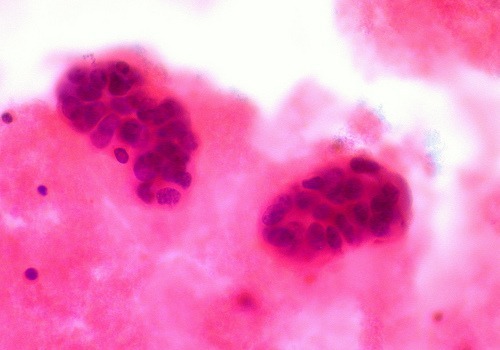Beth Greer's Blog, page 12
November 22, 2010
Reversing and Preventing Diabetes Naturally
"Your Super Natural Life with Beth Greer" GUEST: Dr. Stefan Ripich, author of The 30 Day Diabetes Cure Featuring: The Diabetes Healing Diet , has a 100% success rate for curing Type 2 Diabetes, using a holistic approach, where patients heal themselves. He shares how people can awaken their own healing power and eliminate the need for insulin and other medications. http://www.myhealingkitchen.com
, has a 100% success rate for curing Type 2 Diabetes, using a holistic approach, where patients heal themselves. He shares how people can awaken their own healing power and eliminate the need for insulin and other medications. http://www.myhealingkitchen.com
Listen Now:

November 15, 2010
MOMS: Making Our Milk Safe
"Your Super Natural Life with Beth Greer" GUEST: Mary Brune, is co-founder and project director of MOMS, Making our Milk Safe, sponsored by The Center for Environmental Health. It is a national grassroots movement of mothers working to eliminate the presence of toxic chemicals in our environment and their health effects on children before, during, and after pregnancy. Mary reveals how the presence of toxins in breast milk indicates the toxic burden the rest of us carry, and shares things to avoid to minimize our toxic exposure. http://www.safemilk.org
Listen Now:

November 10, 2010
Ann Louise Gittleman on Electropollution and Your Health
"Your Super Natural Life with Beth Greer" GUEST: Ann Louise Gittleman, an award-winning diet expert, clinical nutritionist and best-selling author of the new book, Zapped: Why Your Cell Phone Shouldn't Be Your Alarm Clock and 1,268 Ways to Outsmart the Hazards of Electronic Pollution . She talks about what happens in our bodies when we're exposed to ElectroMagnetic Fields, how to measure them at home and work, and ways to avoid and protect ourselves from their harmful effects.
. She talks about what happens in our bodies when we're exposed to ElectroMagnetic Fields, how to measure them at home and work, and ways to avoid and protect ourselves from their harmful effects.
Listen Now:

November 2, 2010
Beth Greer on WomensRadio show Speak Up!
Beth recently appeared as a guest on the WomensRadio show Speak Up! to talk about her own health challenges, how she learned to resolve them through a new direction in diet and environment, and tips from her new book that will help everyone lead happier and healthier lives!
Speak Up! invites women, and also men, who "speak" to women in terms of their values, their goals and their strong sense of community, to address issues, opportunities and successes that need to be heard by a larger audience of women leaders
You can listen to the full interview here: Beth Greer on WomensRadio Speak Up!

November 1, 2010
Head of the Hippocrates Institute on Food as Medicine
"Your Super Natural Life with Beth Greer" GUEST: Dr. Brian Clement, Ph.D., N.M.D., is Director of the Hippocrates Health Institute in West Palm Beach, Florida, and at the forefront of the progressive health movement for almost 40 years. His center has pioneered a program, as well as training, in anti-aging and disease prevention. He is author of the books Living Foods for Optimum Health : Staying Healthy in an Unhealthy World , "Longevity", Hippocrates LifeForce
, "Longevity", Hippocrates LifeForce , and his latest Supplements Exposed: The Truth They Don't Want You to Know About Vitamins, Minerals, and Their Effects on Your Health
, and his latest Supplements Exposed: The Truth They Don't Want You to Know About Vitamins, Minerals, and Their Effects on Your Health . He talks about the importance of eating raw, living food, as well as some of the biggest assaults on human health today including the the pharmaceutical fraud of "worthless and harmful vitamin pills."
. He talks about the importance of eating raw, living food, as well as some of the biggest assaults on human health today including the the pharmaceutical fraud of "worthless and harmful vitamin pills."
Listen Now:

October 26, 2010
Why I boycott Breast Cancer Awareness Month
 by Susie Collins – guest blogger for Super Natural Mom
by Susie Collins – guest blogger for Super Natural Mom
Beware: Breast Cancer Awareness Month turns breast cancer into just another marketing campaign.
October is Breast Cancer Awareness Month and I'd like to add my two cents to the discussion: I am a breast cancer survivor and I boycott Breast Cancer Awareness Month.
Rather than jumping on the very popular pink bandwagon, I boycott all breast cancer "awareness" tied to pink ribbon campaigns, subscribing to a CAUSE not CURE approach to the epidemic of breast cancer.
My highly critical view of Breast Cancer Awareness Month is along the lines of Samantha King's, who, in her book Pink Ribbons, Inc., "traces how breast cancer has been transformed from a stigmatized disease and individual tragedy to a market-driven industry of survivorship." King maintains that corporations, under the guise of philanthropy, "turn their formidable promotion machines on the curing of the disease while dwarfing public health prevention efforts and stifling the calls for investigation into why and how breast cancer affects such a vast number of people." I couldn't agree more.
I fully support Breast Cancer Action, an organization based in San Francisco helping to transform breast cancer from a private medical crisis to a public health emergency. And I love their Think Before You Pink campaign that "calls for more transparency and accountability by companies that take part in breast cancer fundraising, and encourages consumers to ask critical questions about pink ribbon promotions." Think Before You Pink also highlights "pinkwashers"—companies that "purport to care about breast cancer by promoting a pink ribbon campaign, but manufacture products that are linked to the disease."
In the spirit of focusing on CAUSE not CURE, Rita Arditti at CommonDreams.org writes about "Why Cancer's Gaining on Us," making the case about the rise in breast cancer coinciding with the flood of synthetic chemicals in our environment since the 1950s, calling for research into any possible links.
"Is there definitive evidence that these substances cause breast cancer?" she asks. "Have they been sufficiently studied? Well, no. We need to know more about the timing, duration, and patterns of exposure, which may be as important as dosage."
Don't miss that the chemicals she lists as examples are some of the very same chemicals to which those of us with Multiple Chemical Sensitivity react negatively.
Since World War II, the proliferation of synthetic chemicals has gone hand-in-hand with the increased incidence of breast cancer. About 80,000 synthetic chemicals are used today in the United States, and their number increases by about 1,000 each year. Only about 7 percent of them have been screened for their health effects. These chemicals can persist in the environment and accumulate in our bodies. According to a recent review by the Silent Spring Institute in Newton, 216 chemicals and radiation sources cause breast cancer in animals.
Nearly all of the chemicals cause mutations, and most cause tumors in multiple organs and animal species, findings that are generally believed to indicate they likely cause cancer in humans. Yet few have been closely studied by regulatory bodies. There is concern about benzene, which is in gasoline; polycyclic aromatic hydrocarbons, which are in air pollution from vehicle exhaust, tobacco smoke, and charred foods; ethylene oxide, which is widely used in medical settings; and methylene chloride, a common solvent in paint strippers and glues.
That's where we should be focusing, not on the pretty ribbon in a feel-good color that pops up on the calendar once a year and is sponsored by the pharmaceutical and cosmetic industries.
This post was originally published in Oct 2008, and republished in Oct 2009.
 Susie Collins is contributing editor at The Canary Report, a blog and online social network about Multiple Chemical Sensitivity. She's a writer, organic gardener, community activist, and lives in Hawaii.
Susie Collins is contributing editor at The Canary Report, a blog and online social network about Multiple Chemical Sensitivity. She's a writer, organic gardener, community activist, and lives in Hawaii.

October 25, 2010
Heal Yourself Heal the Planet
"Your Super Natural Life with Beth Greer" GUEST: Alisa Gravitz, Executive Director of Green America and Green Festivals has taught people how to heal the planet for over 25 years. In this show, she talks about how she's managing her autoimmune diseases by eliminating the stressors on her body. By avoiding foods like sugar, soy and wheat, and getting rid of the chemical toxins in her home, she is pain free and has regained her energy and vitality.
Listen Now:

October 18, 2010
Green Halloween
"Your Super Natural Life with Beth Greer"
GUEST: Founders of the nationwide non-profit initiative, GreenHalloween.org and authors of "Celebrate Green! Creating Eco-Savvy Holidays…" Corey Colwell-Lipson and Lynn Colwell, talk about healthy Halloween alternatives and thinking outside the candy-box. Topics include healthy treats, candy alternatives, safe face paint and hair color, plus what to do with leftover candy.
Listen Now:

October 11, 2010
WiFi, Electromagnetic Fields and Your Health: How to Protect Your Family
"Your Super Natural Life with Beth Greer"
GUEST:GUEST: Magda Havas, Ph.D., researcher on the biological effects of electromagnetic pollution, says our children's health is at risk due to WiFi and antennas installed at schools. She talks about some of the unsuspecting sources of EMFs in our homes, as well as some illness caused by being electrically hypersensitive, plus ways to protect ourselves and our families. Her website is MagdaHavas.com
Listen Now:

October 7, 2010
Warning: Your Baby Contains Toxic Chemicals!
 Hundreds of toxic chemicals, including PCBs, DDT, endocrine disrupters, and dioxins — to name just a few — are showing up in mothers' and their newborn babies' bodies. These chemicals, found in everyday household products, can get absorbed during a typical morning routine.
Hundreds of toxic chemicals, including PCBs, DDT, endocrine disrupters, and dioxins — to name just a few — are showing up in mothers' and their newborn babies' bodies. These chemicals, found in everyday household products, can get absorbed during a typical morning routine.
Consider this scenario: the pregnant mom awakens after a night of breathing toxic fumes from a mattress containing chemicals like flame retardants and melamine. She showers with synthetically scented soap, shampoo and conditioner, and uses popular brands of body lotion, moisturizer, sunscreen, cosmetics and perfume that contain hundreds of chemicals which have been linked to cancer, hormone imbalances, and other illnesses. These chemicals may be seriously compromising her health, as well as her unborn baby's.
Want a Non-Toxic Baby? Create a Healthy Nursery
Chemicals can also migrate into a baby through the nursery. New parents, with good intentions, buy new baby furniture, install new synthetic carpeting, and paint or wallpaper the room — all the while creating a toxic environment from airborne chemicals released from these products. Plus, there are toxic chemicals in the poorly-labeled bottles of kitchen and bathroom cleansers, and in bug sprays and air fresheners used throughout the home.
In addition, common infant body care products can be problematic. A Seattle Children's Hospital Research Institute study reported that babies recently treated with baby lotion, shampoo, and powder, were more likely to have phthalates in their urine than other babies. Phthalate exposure in early childhood has been associated with altered hormones as well as increased allergies, runny nose, and eczema.
Be aware that the FDA does not review personal care ingredients for their safety before they come to market. Manufacturers are free to add almost anything they want into their products, so it's important to buy safe, preferably organic products from trusted companies. The good news is that it's easy to create a safe and natural baby nursery.
Top 10 Ways to Make your Baby Nursery a Safe, Healthy Haven:
Choose a crib mattress made from untreated, nontoxic, natural materials like latex foam rubber, wool and cotton. Use a wool and cotton mattress topper.
Buy a solid wood crib or cradle/Moses basket instead of one made from fiberboard or particleboard (which contain formaldehyde, a known carcinogen).
Use low or no VOC (volatile organic compound) paint for the walls, or paper-based wallpaper instead of vinyl. Traditional wallpaper paste is better than self-stick, which contains high levels of VOCs.
Install wool carpet instead of synthetic. Wool is naturally flame retardant and hypoallergenic.
Stay away from synthetic fragrances in things like dryer sheets, air fresheners and body care products. These contain phthalates — chemicals that interfere with hormones. Use 100% essential oils instead.
Pick all natural, non-toxic cleaning products or try white vinegar, hydrogen peroxide and baking soda. Kill odors with baking soda, lemon juice (or lemon essential oil) and water in a spray bottle. Avoid bleach, ammonia and other harsh chemicals to clean clothes, furniture and carpets.
Stay away from plastic bottles and food storage containers — they contain chemicals that leach into food and water. Use glass or metal instead.
Choose wooden toys with nontoxic paints and finishes; and all-natural fibers like cotton, hemp and wool.
Don't put electric clocks or cell phones next to the baby's crib, or use electric heating pads or electric blankets in the crib — these have electromagnetic fields (EMFs) that can negatively impact behavior and health.
Make your home shoeless — remove your shoes, especially before entering bedrooms, so you don't track in pesticides and other toxic chemicals from the outside.
The 2010 President's Cancer Panel study says there's a link between environmental toxins and disease. For information on ways to change the government regulatory practice to the Precautionary Principle, go to the Center for Environmental Health's (CEH) website. To learn more about the Safe Chemical Act in Congress, check out the EWG website. For more information on ways to protect children from toxic chemicals visit Healthy Child Healthy World. For resources on where to buy safe, natural baby products, check out my website.
To order an advance copy of my new book "99 Things You Wish You Knew Before Setting Up a Healthy Baby Nursery," contact me on my website.
Beth Greer, Super Natural Mom™, is the bestselling author of Super Natural Home, host of "Your Super Natural Life" on Clear Channel's Green 960 Radio, and impassioned champion of toxin-free living who busts open the myth that our homes are safe havens. She consults for restaurants, retreat centers and healthcare agencies. Follow Beth on Twitter. Become a fan on Facebook.





